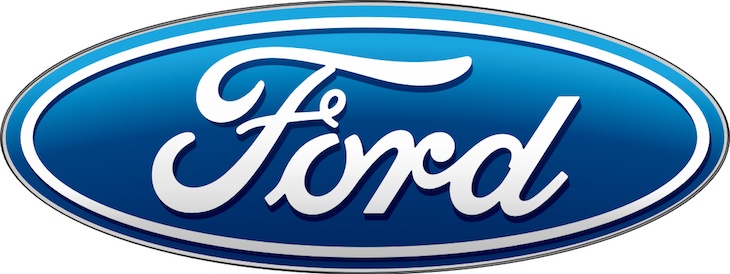Ford Motor Co. futurist talks self-driving cars, sharing economy, prepping for future trends
by March 4, 2017 2:43 pm 665 views

The 100-year-old Ford Motor Company faces a future that includes autonomous vehicles and a sharing economy that threatens vehicle sales, according to Sheryl Connelly, global consumer trends and futuring manager for the automaker.
Connelly shared those and other insights Friday evening (Mar. 3) during the Winthrop Rockefeller Distinguished Lecture series held at the University of Arkansas. Connelly explained a futurist can’t predict exactly what’s going to happen, but her role is to look into the future and compile profiles of the best and worse possible scenarios. In doing that, she said Ford is rarely surprised when the future happens – good or bad.
For instance, self-driving cars and trucks are a real possibility for Detroit-based Ford. Connelly told Talk Business & Politics that Ford plans to have autonomous vehicles on U.S. roads by 2021. She said that’s interesting because research suggests people in China and India are more ready for self-driving vehicles. She said an informal consumer survey conducted two years ago to gauge readiness for autonomous vehicles by 2025 indicated India was most ready at 84%, 78% for China, and just 40% for the U.S.
“We have several theories on why the Western world is less ready, Part of it’s road congestion which is much worse in India and China. Then there is a cultural connection to cars and trucks in the U.S. that has gone on for generations, which just isn’t the case in places like India and China,” Connelly told Talk Business & Politics after her speech.
She said Ford still plans to have autonomous vehicles on the road in the next four years but commercial application and right-lane-only to start. Connelly said autonomous vehicles are a safer mode of transportation with fewer accidents and less traffic congestion, and are also more cost effective to operate. For instance, research indicates if it costs consumers $6 a mile to drive their own car, a taxi cost would be $4, using Uber would be $2, but self-driving cars could be as low as $1 per mile because all the labor has been removed.

Connelly said autonomous vehicles, because of their safety factor, could have an impact on senior populations that have to give up driving.
“Not only does giving up driving hinder one’s individual freedom to go at will, but it’s a ding to the dignity as well. Autonomous vehicles could allow seniors to age in place and still have the mobility they need to seek medical care, food and recreation,” Connelly said.
When asked about drone application in final-mile delivery, Connelly said Ford debuted in late 2016 its own segway-like vehicle it calls Carr-E that acts as a pedestrian assistant. She said the four-wheeled vehicle could follow her through the airport carrying her luggage and trailing along behind her. She said Ford is still testing the Carr-E viability for delivering packages to an address.
“I am not sure if it will go into production, but Ford is testing this technology for all its applicable uses in the future. We are a mobility company,” Connelly said. “The regulations and oversight we are seeing with drone usage is likely what we will also see with autonomous vehicles.”
‘RUNNING ON EMPTY’
She said staring into the future can be scary, but there is no reason it should never be a surprise if businesses and consumers have thought through the scenarios. She said her job at Ford is to look for trends and distinguish them from fads and project how those trends might impact the business and world as they know it.
Connelly said in 2004 she and a team of 100 company insiders and 75 outsiders were asked to put together the worst scenarios they could imagine for business, Ford and the U.S. economy in the next 20 years. She said they came up with four. One of them dubbed “running on empty” showed lack of demand, Ford having to slow its production, even shuttering some plants, disrupting the business of their suppliers and putting some of them out-of-business. Also in this scenario, she said gas prices rose and there were people unemployed, financial turmoil and deep recession. Perhaps the company would even face bankruptcy.
In 2007 and 2008, that’s nearly exactly what happened to Ford and the country. She said Ford was not totally surprised by the events because it had been told of the possibility just three to four years earlier. She said some of the other scenarios involved aliens, and widespread disease of Avian Influenza because they went far out on a limb to think of all potential possibilities.
While Ford does its part to not be surprised by the future, Connelly said there are occasional disruptive trends which are troubling for some in the company. For instance, Connelly said the sharing economy could reduce the number of new vehicles sold by all automakers.
“Not everyone has the same appetite for looking into the future. My job is to research the trends at work and make them known so the company can plan accordingly. It’s not easy, but worthwhile work,” she said.
She also said Ford is actively investing in start-ups as part of an effort to have a more nimble mindset as technology and trends disrupt traditional business models.
